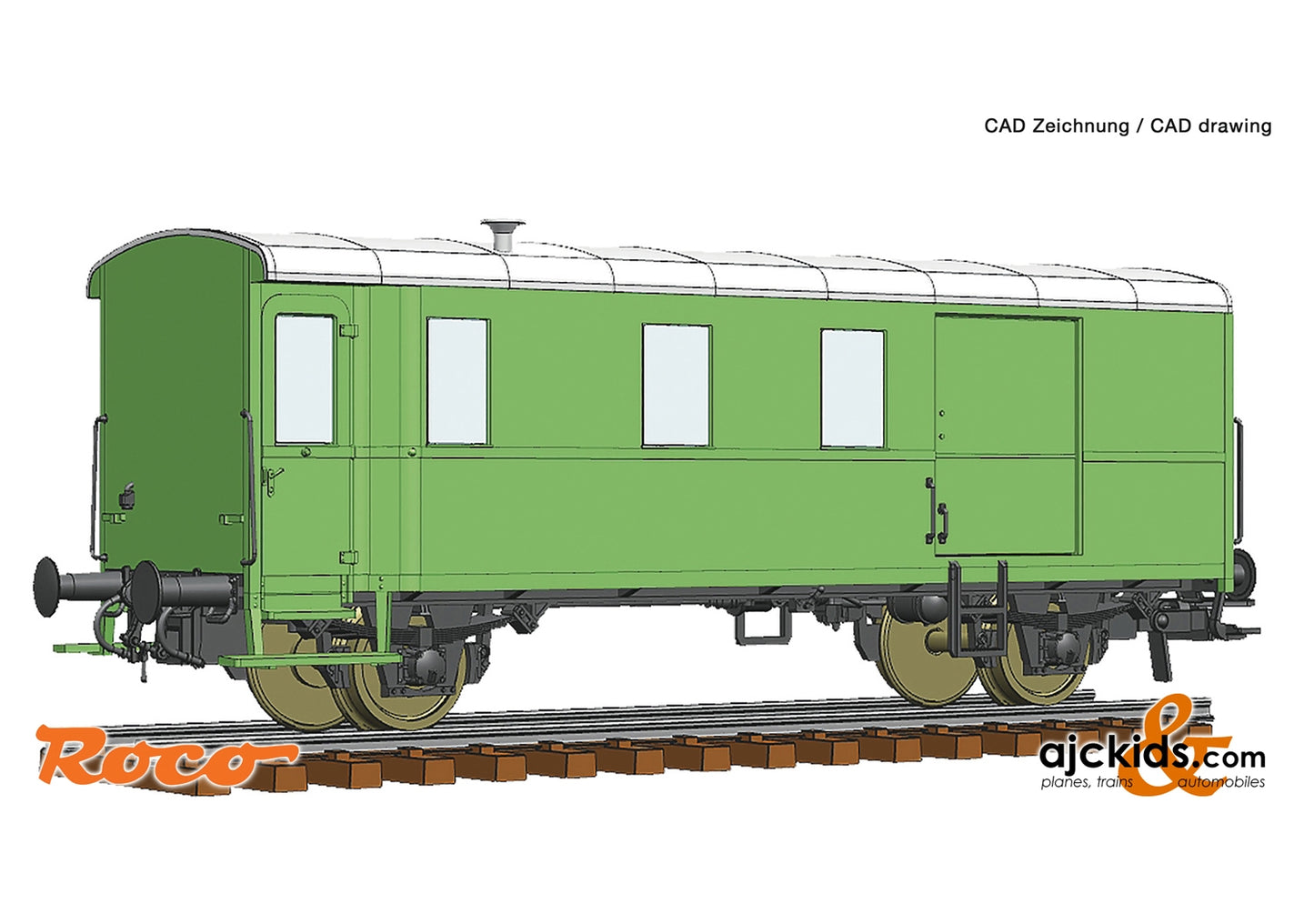Roco 74220 - Goods train bagagge wagon
Finely detailed model with separately applied plug-in parts Steps at the baggage compartment doors in a modernised, narrow design Sliding doors can be optionally attached in three positions (closed, half-open, open)
Product description
For many years, goods trains were accompanied by personnel in their own baggage wagons. They provided space for the guard, and also for the baggage master and the shunters employed for shunting procedures at the stations. Before the air brakes were introduced on all cars, this wagon also housed the brakemen. The personnel was able able to warm themselves up and eat there during station stops. The customary type description for the accompanying car was Pwg (baggage wagon for goods trains). From 1941, onwards, during the course of the general acceleration of freight transport, the Deutsche Reichsbahn (DRB) procured more than 700 accompanying cars from various wagon factories (Waggonwerke West, Rastatt, SGP). These were manufactured in steel construction in several series and according to different drawings. They could be heated, and possessed, in addition to the baggage compartment, a guard’s compartment, an entrance area and a toilet. The baggage compartment was accessible via interior sliding doors. Some cars were still supplied with raised cabs for the guard. This made it easier for the guard to observe the signals. Until the 1960s, guards were obligated to observe these signals. Later, most railway companies removed the raised cabs. Because the cars were built in several different factories, and remained in diverse countries within Europe after the Second World War, they differ in several striking details, in particular regarding the roof, the head end, the side walls, the window layout and the number of windows. For a long time, these cars were deployed in every goods train as baggage wagons or also as freight accompanying cars; some railway companies al
EAN/UPC: 9005033742201



